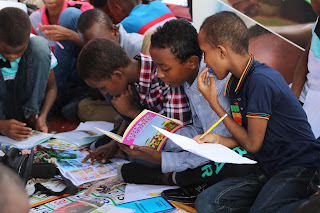Tid Lit Talkers - Dan Bell and “4C Transformative Learning”
It’s always a treat to walk down memory lane with a friend and colleague; it’s practically a gift when you get to run an interview with such an individual, especially when the topic of the day is something you’re both so passionate about. Dan and I went to university together and although our paths veered in different directions, they have crossed once again in this inspiring discussion about the impacts of empowering students to find their voice and their place in a classroom. There are some key points in this meander though such definitive educational concepts - the importance of reflection, feedback, and language for both teachers and students is certainly the point which resonates with me most. If every student can begin their literacy journey by understanding the true power of language, and in turn every educator can provide an equitable platform by which students can obtain and master language… well we might not even need something like NAPLAN. You can check out everyt...



